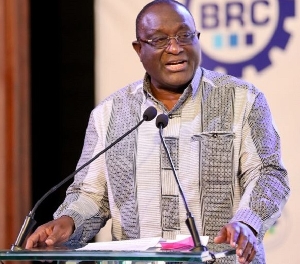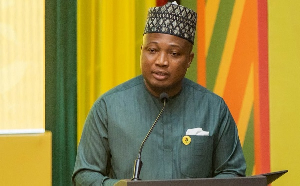Alan Kwadwo Kyerematen, the founder and leader of Movement for Change, has criticised the government for imposing a new Value Added Tax (VAT) on energy consumers who exceed the lifeline level.
The former Trade and Industry Minister stated that the government’s decision to impose a 15% VAT on electricity consumption was not appropriate at this time.
In a social media post, he said that Ghanaians are already facing hardship, and this will further exacerbate their situation.
“In the kind of economic situation we find ourselves, every government policy, plan or decision, has to have the objective of achieving the following; reduce the cost of living, reduce the cost of doing business, reduce exchange rate, and create sustainable jobs for the youth” the former minister said in a post on X (formerly Twitter).
He added, “Putting VAT on electricity will not achieve any of the above. It would rather worsen the plight of the ordinary Ghanaian”.
Meanwhile, he has assured Ghanaians that his Great Transformational Plan (GTP), “as a trusted roadmap, would guide us to achieve the above objectives and more.”
Background
The Ministry of Finance announced in the second week of January that the government has imposed a value-added tax (VAT) on a specific section of electricity consumers in the country.
The letter, addressed to the Electricity Company of Ghana (ECG) and the Northern Electricity Distribution Company (NEDCO), was signed by the Minister for Finance, Ken Ofori-Atta.
The letter explained that VAT will apply to residential electricity customers above the maximum consumption level specified for block charges for lifeline units. This move is part of the government’s COVID-19 recovery programme and took effect on January 1, 2024.
The letter future noted that the implementation of VAT for residential customers of electricity is in line with Sections 35 and 37 and the First Schedule (9) of the Value Added Tax (VAT) Act, 2013 (ACT 870). The government aims to generate revenue through this initiative and support the country’s medium-term revenue strategy and the IMF-supported Post-COVID-19 Programme for Economic Growth (PC-PEG).
However, it is important to note that VAT will remain exempt for “a supply to a dwelling of electricity up to a maximum consumption level specified for block charges for lifeline units,” as mentioned in Sections 35 and 37 and the First Schedule (9) of Act 870.
The Minister requested that ECG and NEDCO collaborate with the Ghana Revenue Authority (GRA) to ensure the effective implementation of VAT from January 1, 2024.
The companies are expected to put the necessary measures in place to facilitate the collection of VAT from residential customers above the maximum consumption level.
General News of Friday, 26 January 2024
Source: rainbowradioonline.com













